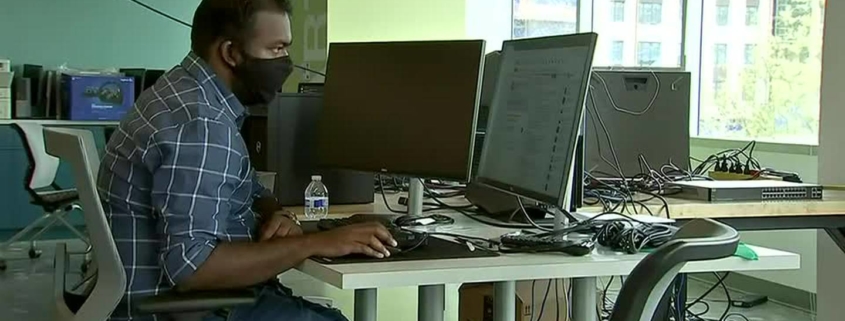New TSA security tech raises concern about the potential of misidentifying minority travelers – WPXI
The future of airport security is getting more high-tech as the TSA continues testing a system that scans your face during the screening process.
The pilot program with facial recognition technology is running at several airports nationwide.
An agency official said the technology is only used at podiums manned by a TSA worker to match a passengers’ identification information “with a photo of their physical presence at that station.” The agency believes this will enhance security and cut wait times.
If the technology thinks you’re someone else, a TSA official said a security worker would manually check your ID.
“To me just invites, further law enforcement scrutiny invites further contact with authorities in ways that are not going to be helpful,” said Vincent Southerland, NYU Assistant Professor of Clinical Law.
Southerland helps run the Center on Race, Inequality, and the Law at NYU. He believes an incorrect match could be problematic for minority travelers.
“Force the person to kind of have to prove or demonstrate their identity in weird ways that they otherwise would not have and that is going to course lead to conflict,” said Southerland. “And conflict often does not end very well for folks who have been traditionally marginalized, oppressed and targeted by law enforcement.”
It’s also happened before with facial recognition technology.
Take the case of Robert Williams – he’s a black man who the ACLU says was wrongfully arrested by Detroit Police in 2020. The organization said facial recognition software incorrectly identified him as a shoplifting suspect. The ACLU says the charges were eventually dropped.
In some cases, this software compares your image to another one or an entire database of photos.
So what happens when travelers don’t look exactly like their ID?
A 2019 federal government study by The National Institute of Standards and Technology (NIST) echoes some of those concerns. It found that Asian and African Americans were up to 100 times more likely to be misidentified than White people, depending on the algorithm and the search.
“The bigger finding from the 2019 study was that the false positive rates where somebody else could use your passport or…


